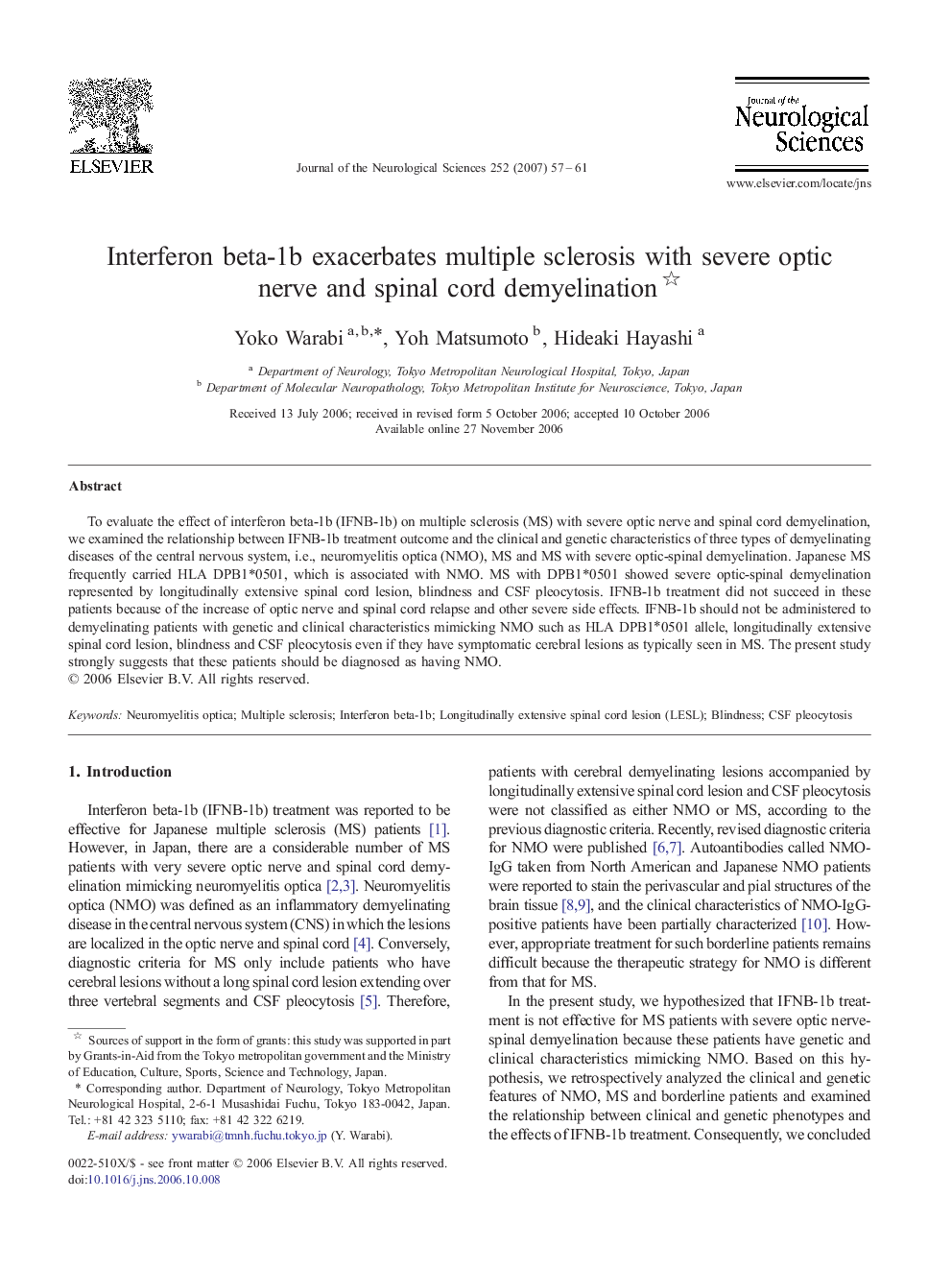| Article ID | Journal | Published Year | Pages | File Type |
|---|---|---|---|---|
| 1916537 | Journal of the Neurological Sciences | 2007 | 5 Pages |
To evaluate the effect of interferon beta-1b (IFNB-1b) on multiple sclerosis (MS) with severe optic nerve and spinal cord demyelination, we examined the relationship between IFNB-1b treatment outcome and the clinical and genetic characteristics of three types of demyelinating diseases of the central nervous system, i.e., neuromyelitis optica (NMO), MS and MS with severe optic-spinal demyelination. Japanese MS frequently carried HLA DPB1⁎0501, which is associated with NMO. MS with DPB1⁎0501 showed severe optic-spinal demyelination represented by longitudinally extensive spinal cord lesion, blindness and CSF pleocytosis. IFNB-1b treatment did not succeed in these patients because of the increase of optic nerve and spinal cord relapse and other severe side effects. IFNB-1b should not be administered to demyelinating patients with genetic and clinical characteristics mimicking NMO such as HLA DPB1⁎0501 allele, longitudinally extensive spinal cord lesion, blindness and CSF pleocytosis even if they have symptomatic cerebral lesions as typically seen in MS. The present study strongly suggests that these patients should be diagnosed as having NMO.
